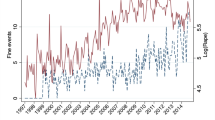Abstract
The transnational sex industry experienced a surge during the 1990swith the breakup of the former Soviet Union. The virtual enslavementof a growing number of women into the global prostitution market fromthis region of the world has begun to be documented in an on-goingmanner by independent non-governmental organizations that trackmigration patterns and international criminal activity. The emergenceof this phenomenon in Europe expands the study of the transnationalsex industry well beyond Southeast Asia and Asia, where it has beenexamined primarily to date. Governments and internationalgovernmental organizations such as the United Nations are also nowfocusing on this issue from local and global perspectives. In thispaper, the roles that transnational police organizations can play, andhave been playing, regarding preventing and investigating the activitiesof the transnational sex industry, are explored. After sketching thescope of the problem, identifying the players of interest, and examiningthe roles that they have been performing to date, recommendations areoffered for strengthening police response in this area.
Similar content being viewed by others
Author information
Authors and Affiliations
Rights and permissions
About this article
Cite this article
Mameli, P.A. Stopping the illegal trafficking of human beings. Crime, Law and Social Change 38, 67–80 (2002). https://doi.org/10.1023/A:1019876429551
Issue Date:
DOI: https://doi.org/10.1023/A:1019876429551




